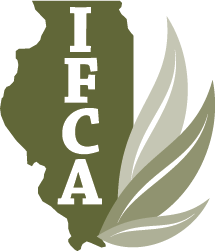Iowa Nutrient Lawsuit Ruling: What it is and What it isn't
There's been much talk about the Iowa Supreme Court ruling last week that ruled in favor of agricultural interests on a portion of the Des Moines Waterworks lawsuit. As IFCA has been out making presentations on the 4Rs and nutrient stewardship, we've been surprised to find out that many believe that this lawsuit is now over and the case is closed with agriculture prevailing. That is only part of the story, this case is still on-going.
The Iowa Supreme Court ruled that the Des Moines Waterworks (DMWW) cannot collect damages from the drainage districts or from individual farmers for the costs to remove nitrate from the water supply. That was part of the original lawsuit that the DMWW filed. The state court ruled that the Iowa legislature had provided immunity from damage claims in the drainage statute and that farmers are also held harmless from water contamination if they follow the pesticide and fertilizer labels when applying these products.
This is certainly a positive sign and removes some of the uncertainty regarding the impact of this lawsuit, but the issue over whether tile drainage should be regulated as a point source under the federal Clean Water Act is still going to be decided in Federal Court. The U.S. District Court has delayed the start of this trial until June 2017, in part because they wanted the state court to rule first on some of the issues such as the issue of who could be held liable for damages. If the Court rules that tile drainage is subject to the Clean Water Act, it will impact all of agriculture, not just tile drainage in Iowa, because this will be a federal determination on the applicability of the Clean Water Act to tile drainage.
Iowa Department of Ag Secretary Bill Northey summed up the court ruling in a pragmatic way. He said it was a significant loss to DMWW but he also stressed that the public continues to have high expectations for farmers to manage nutrients responsibly. He told farmers they must continue to advance the goals of the Iowa Nutrient Reduction Strategy and that "it is voluntary, but not optional."
Here in Illinois, NREC continues to support on-farm research to determine the best ways to reduce nutrient losses through nutrient management, water management, cover crops and the study of the practicality of bioreactors and wetlands in the agricultural landscape. By 2025, the Illinois Nutrient Loss Reduction Strategy calls for a 15% reduction in nitrogen losses and a 25% reduction in phosphorus losses. If you would like IFCA to present an update on the nutrient stewardship and research efforts underway in Illinois to your company or customers, give us a call or visit our Keep it 4R Crop tools at www.ifca.com.
